- Home
- Quizzes
- My Quiz Activity
- Newsletters
- Sports Betting
- MY FAVORITES
- Add Sports/Teams
- SPORTS
-
NFL
- NFL Home
- Arizona Cardinals
- Atlanta Falcons
- Baltimore Ravens
- Buffalo Bills
- Carolina Panthers
- Chicago Bears
- Cincinnati Bengals
- Cleveland Browns
- Dallas Cowboys
- Denver Broncos
- Detroit Lions
- Green Bay Packers
- Houston Texans
- Indianapolis Colts
- Jacksonville Jaguars
- Kansas City Chiefs
- Las Vegas Raiders
- Los Angeles Chargers
- Los Angeles Rams
- Miami Dolphins
- Minnesota Vikings
- New England Patriots
- New Orleans Saints
- New York Jets
- New York Giants
- Philadelphia Eagles
- Pittsburgh Steelers
- San Francisco 49ers
- Seattle Seahawks
- Tampa Bay Buccaneers
- Tennessee Titans
- Washington Commanders
-
MLB
- MLB Home
- Arizona Diamondbacks
- Atlanta Braves
- Baltimore Orioles
- Boston Red Sox
- Chicago White Sox
- Chicago Cubs
- Cincinnati Reds
- Cleveland Guardians
- Colorado Rockies
- Detroit Tigers
- Houston Astros
- Kansas City Royals
- Los Angeles Angels
- Los Angeles Dodgers
- Miami Marlins
- Milwaukee Brewers
- Minnesota Twins
- New York Yankees
- New York Mets
- Oakland Athletics
- Philadelphia Phillies
- Pittsburgh Pirates
- San Diego Padres
- San Francisco Giants
- Seattle Mariners
- St. Louis Cardinals
- Tampa Bay Rays
- Texas Rangers
- Toronto Blue Jays
- Washington Nationals
-
NBA
- NBA Home
- Atlanta Hawks
- Boston Celtics
- Brooklyn Nets
- Charlotte Hornets
- Chicago Bulls
- Cleveland Cavaliers
- Dallas Mavericks
- Denver Nuggets
- Detroit Pistons
- Golden State Warriors
- Houston Rockets
- Indiana Pacers
- Los Angeles Clippers
- Los Angeles Lakers
- Memphis Grizzlies
- Miami Heat
- Milwaukee Bucks
- Minnesota Timberwolves
- New Orleans Pelicans
- New York Knicks
- Oklahoma City Thunder
- Orlando Magic
- Philadelphia 76ers
- Phoenix Suns
- Portland Trail Blazers
- Sacramento Kings
- San Antonio Spurs
- Toronto Raptors
- Utah Jazz
- Washington Wizards
-
NHL
- NHL Home
- Anaheim Ducks
- Arizona Coyotes
- Boston Bruins
- Buffalo Sabres
- Calgary Flames
- Carolina Hurricanes
- Chicago Blackhawks
- Colorado Avalanche
- Columbus Blue Jackets
- Dallas Stars
- Detroit Red Wings
- Edmonton Oilers
- Florida Panthers
- Los Angeles Kings
- Minnesota Wild
- Montreal Canadiens
- Nashville Predators
- New Jersey Devils
- New York Islanders
- New York Rangers
- Ottawa Senators
- Philadelphia Flyers
- Pittsburgh Penguins
- San Jose Sharks
- Seattle Kraken
- St. Louis Blues
- Tampa Bay Lightning
- Toronto Maple Leafs
- Vancouver Canucks
- Vegas Golden Knights
- Washington Capitals
- Winnipeg Jets
- NCAAF
- NCAAM
- Boxing
- Entertainment
- Lifestyle
- Golf
- MMA
- Soccer
- Tennis
- Wrestling
- More Sports
- RESOURCES
- My Account
- YB on Facebook
- YB on Twitter
- YB on Flipboard
- Contact Us
- Privacy Policy
- Terms of Service

20 facts you might not know about How the Grinch Stole Christmas
Santa Claus is a famous Christmas figure. Do you know who is also up there in terms of fame? That would be the Grinch. Although, this grouchy, green fellow is maybe a bit less cheerful than Kris Kringle. After all, the Grinch famously tried to steal Christmas. That story came to life in the 1966 television special “How the Grinch Stole Christmas.” Since then, it’s become a holiday staple. Here are 20 decidedly-not-mean facts about this special.
It’s based on a Dr. Seuss book
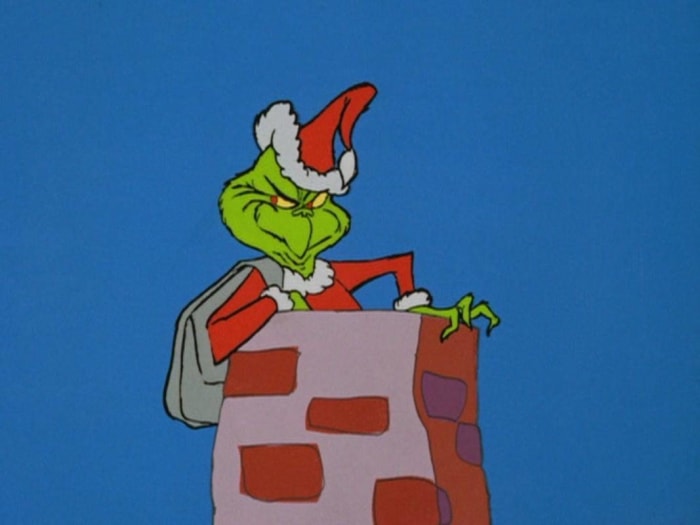
There’s a good chance you know that Dr. Seuss is the author of “How the Grinch Stole Christmas.” However, did you know that Seuss also got the screenplay credit on the special? Let’s dive into how the story came into being. The Grinch first appeared in a poem in “Redbook” in 1955 called “The Hoobub and the Grinch.” In 1957, he decided to take the Grinch and put him in the center of his own book, which was based on Dr. Seuss feeling fairly Grinch-y himself about Christmas at the time.
An animation legend directed

The co-director and co-producer of “How the Grinch Stole Christmas” is none other than Chuck Jones. Jones is one of the legends of animation, having played a huge role in animating and directing “Looney Tunes” cartoons. Our conception of Bugs Bunny and others is pretty much owed to Jones’ work.
Jones and Seuss had worked together before
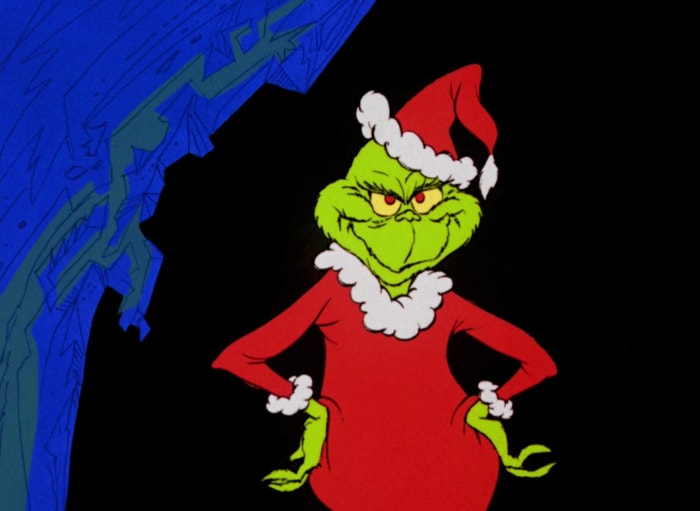
Jones and Ted Geisel (aka Dr. Seuss) first worked together during World War II. Then, they collaborated on the “Private Snafu” series of training cartoons. They were lighthearted ways to try and teach and inform new soldiers.
Geisel wasn’t sure at first
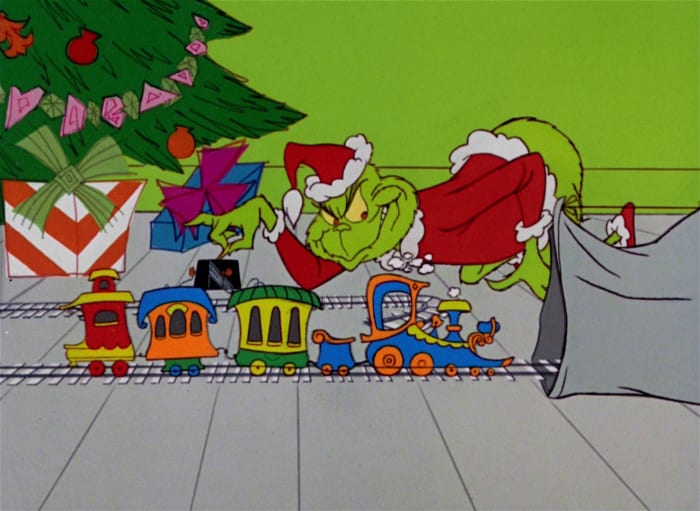
When Jones first came to Dr. Seuss with the idea of turning “How the Grinch Stole Christmas” into a television special, the author was tentative. In 1953, he had written the screenplay for the movie “The 5,000 Fingers of Dr. T.” He hated that experience so much he never wrote another film. Eventually, Geisel signed on and was a producer on the special.
A composer was brought on board

Geisel wrote all the lyrics to the songs in the musical adaptation of his book, but neither he nor Jones was capable of providing the music. That’s where Albert Hague stepped in. A German immigrant who fled Nazi Germany as a kid, Hague worked on Broadway in addition to having a small acting career. He plays the psychiatrist in “Space Jam,” weirdly enough.
An icon provided his voice
The narrator and the Grinch are both the same voice, and that voice is provided by none other than Boris Karloff. Karloff is, to this day, the most-famous portrayer of Frankenstein’s Monster (aka Frankenstein if you aren’t feeling pedantic). This has made him a true legend of the silver screen. Oh, and he played the Mummy as well.
Karloff wasn’t the only notable voice actor

Cindy-Lou Who is voiced by June Foray, who was also the voice of Rocky the Flying Squirrel and about a million other characters. Jones once quipped “June Foray is not the female Mel Blanc. Mel Blanc was the male June Foray.” Max, the dog, was voiced by Dal McKennon, a voiceover artist with a career that spanned 50 years. Among his characters were Gumby and Pokey. Meanwhile, Thurl Ravenscroft provides that bass voice in “You’re a Mean One, Mr. Grinch.” He was also the original voice of Tony the Tiger.
Not that you knew all that at the time

Karloff, as a big star, got credited for his work in this special. He was the only one, though. At the time, Foray, McKennon, and Ravenscroft were all uncredited for their performances.
CBS was riding high at the time

CBS was happy to sign off on bankrolling and airing “How the Grinch Stole Christmas.” They had just struck it big in 1965 with “A Charlie Brown Christmas.” Wanting to make such it would land, Jones and Geisel were given a budget of $315,000. This was more than four times what Bill Melendez had gotten to direct “A Charlie Brown Christmas.”
They got creative to keep the special unique
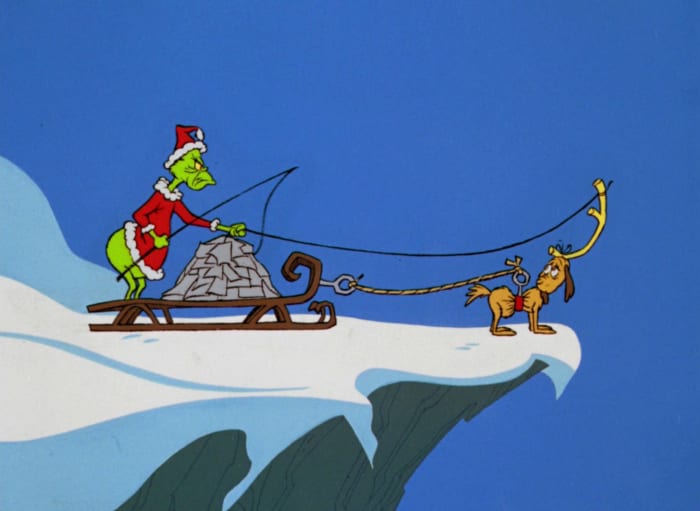
Jones didn’t want to have any of the usual Christmas stuff in the special. That stems from the book, which eschewed not just the religious but also the Christmas trappings like Santa. The director got the idea to rely on what he called “Seussian Latin,” which is all the made-up language in the story. Jones surmised that real Latin was as indecipherable to many viewers as their fictional language.
The original sponsor has been lost to time

These days, people watch things that are streaming, making advertisements something we see less and less. Even when we watch commercial TV, we are seeing different ads during breaks. Back in the day, though, TV shows would be sponsored by a single advertiser. When “How the Grinch Stole Christmas” first aired on December 18, 1966, it was sponsored by the Foundation for Full-Service Banks. This was edited out of every broadcast after the first one, though.
The special did introduce something about the Grinch

In the book, the Grinch is white. However, color television was still fresh and exciting in 1966, so they wanted a color special. As such, it’s the TV special where the Grinch was first colored green, which has become canonical for the character.
They had to pad the story a bit
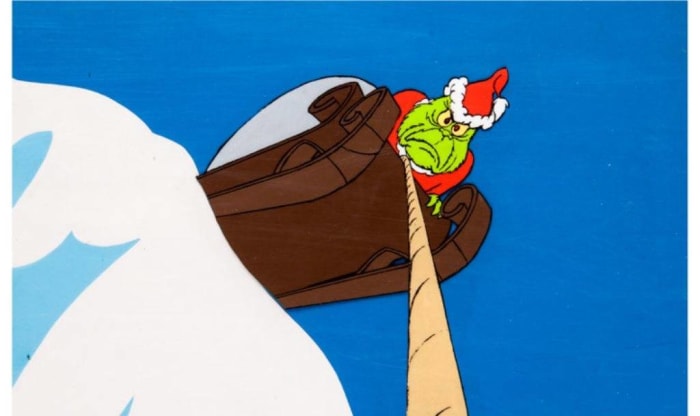
Even though the special was only 25 minutes without commercials, Dr. Seuss’ book wasn’t exactly a robust tome. As such, much like a car chase in an episode of “The Rockford Files,” action scenes were used to stretch out the story. In particular, the Grinch and Max’s descent from up on Mt. Crumpit down to Whoville was used to pad out the story.
It was a staple for CBS for years
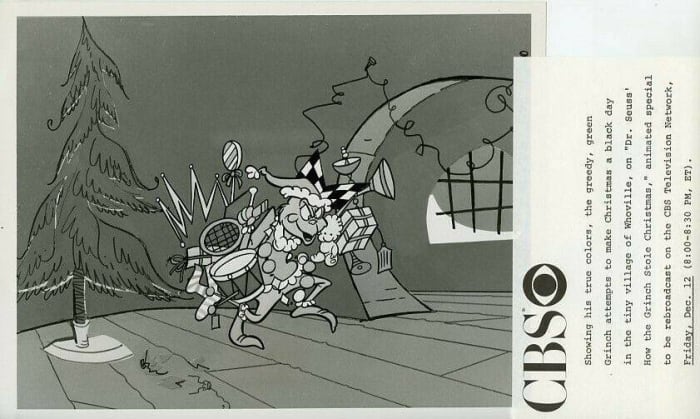
For a long time, you could count on CBS trotting out “How the Grinch Stole Christmas” for the holidays. They aired it around Christmas every single year through 1987. After that, it became airing on different channels, such as TNT, TBS, The WB, and ABC. Currently, NBC owns the rights to air it.
The numbers say it’s a true classic

Currently, the television special has a perfect 100-percent rating on Rotten Tomatoes. On top of that, “TV Guide” ranked it as the best holiday special of all time.
It won a Grammy

Odd things will win Grammys here and there. After all, the Grammys have categories like “Best Children’s Album.” The winner in 1968? That would be “Dr. Seuss: How the Grinch Stole Christmas,” a recording of the special. The win was specifically given to Karloff.
There are a couple unusual follow ups

In 1977, the Grinch swapped holidays. He pops up in the ABC special “Halloween is Grinch Night,” a prequel about the Grinch haunting the Whos on Halloween. Notably, it won an Emmy. Then, in 1982 we got a colliding of worlds when we got “The Grinch Grinches the Cat in the Hat.” This too won an Emmy.
Two feature-length movies have been made

In 2000, Ron Howard directed a live-action version of “How the Grinch Stole Christmas” with Jim Carrey in the lead role. It’s…a lot to wrap your head around. One glimpse of Carrey in his Grinch makeup may leave you shaken for hours. Then, in 2018, “The Grinch” returned to the animation realm. This time, Benedict Cumberbatch voiced the Grinch.
The latter film was a massive success

“The Grinch” doesn’t have a perfect score on Rotten Tomatoes (it actually has a 59-percent rating), but it does have one thing going for it. It made $511.8 million worldwide at the box office. This made it the highest-grossing Christmas movie of all time. Yes, really.
The big song is still a big hit

In a world where streaming and YouTube and a bunch of stuff we admittedly don’t understand helps fuel the “Billboard” charts, old songs can pop up, especially holiday ones. This has benefitted Ravenscroft and his song “You’re a Mean One, Mr. Grinch.” In 2020, it showed up on the “Billboard Hot 100” charts all the way up at number 32.
Chris Morgan is a sports and pop culture writer and the author of the books The Comic Galaxy of Mystery Science Theater 3000 and The Ash Heap of History. You can follow him on Twitter @ChrisXMorgan.
More must-reads:
Trending in Entertainment
Customize Your Newsletter
 +
+
Get the latest news and rumors, customized to your favorite sports and teams. Emailed daily. Always free!
Use of this website (including any and all parts and
components) constitutes your acceptance of these
Terms of Service and Privacy Policy.

